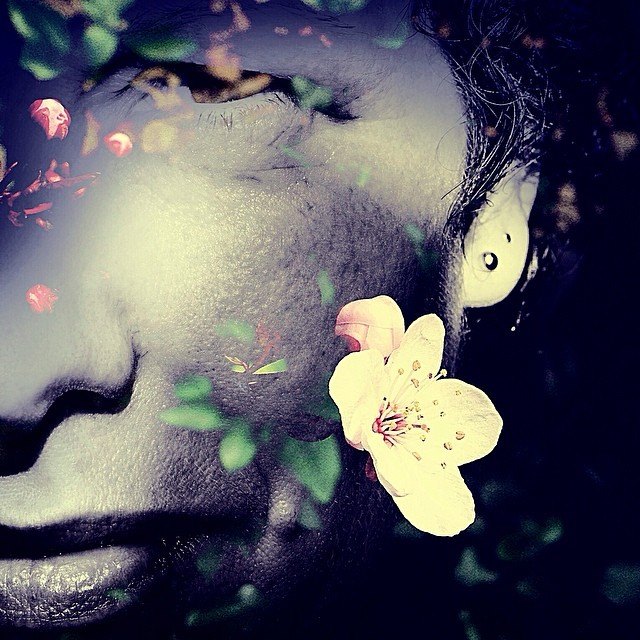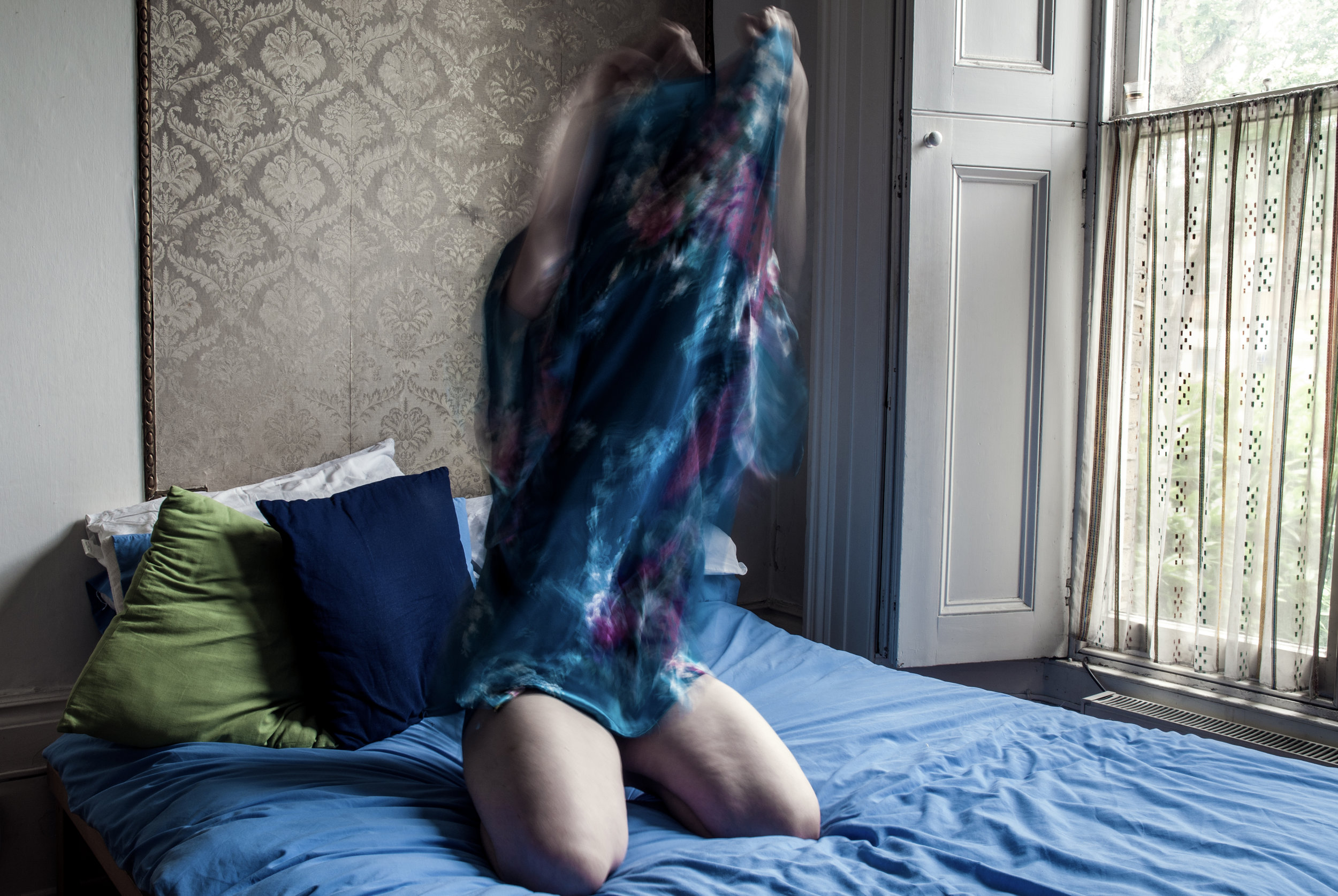Living with long term health issues affects everything we do. And this includes the most intimate aspects of our day to day living. I talked to some close friends about how illness had impacted on their sex lives. People were very generous in their responses. I've changed the names of the interviewees due to the sensitivity of the subject matter.

Sam is in a long term relationship.
"Our relationship started before I became ill and we have been together many years, the majority of which I have been unwell. It has changed so much in terms of what we can do as a couple and what we can enjoy together. It is hard to be spontanous or find anything new or different to do and we really just spend time quietly together at home, with the occasional trip out for a couple of hours. I think generally we are a strong unit and have adapted quite well to this way of life, but it does cause extra pressure and responsibilty on my partner and I don't like seeing the effects of that stress. My partner was very understanding and supportive from day one, despite our relationship being relatively new at the time there was no hesitation in taking me and the illness on, though neither of us had any idea it would be such a permanent feature in our future lives.
I live with my partner. This has huge benefits for me in terms of having company when I need it and being cared for. It can be hard seeing how much their life has to change and be limited to accomodate my needs. I find it helps to be cared for and loved by a partner, rather than living with a parent. I feel less childlike in my needs and more equal and appreciated for what I bring and offer to the relationship.
It has changed our sexual relationship a lot, as before I got ill and early on when I was less severely affected, we had a great sex life. This got harder and harder to fit around my illness and we started to plan it so that I could rest in the days before and after, but it took a lot out of me and caused me a lot of muscular pain and exhaustion. Over the years it has become less and less frequent until maybe a year or two ago each time we tried it, the act itself became too painful for me to continue past a certain point.
My partner is not happy to participate at all on the basis that we both do not both get the same amount of pleasure from it. I still experience myself as a sexual person and I am still grieving the loss of my ability to properly orgasm, which was something I enjoyed very regularly before. We are still physically close and are intimate, but I miss that intensity and giving my partner such pleasure very much. What closeness we do have is very comforting and loving and helps me so much in coping with my symptoms and daily reality. We laugh a lot together and that is so important to me.
I have heard disability campaigners try to challenge the idea that disabled people are not sexual and cannot have sex. They state that WE DO with much enthusiasm. I understand why (and I am a sexual being) but this still makes me feel excluded, as someone with a chronic and largely invisible illness who cannot have sex, from wider disability movement. My experience does not always fit with that of other disabled people or their aims/assertions, though I completely identify as disabled as my illness and fairly severe impairments seem permanent. Our experiences are so diverse and I hope that one day a more subtle and complex "disabled voice" that can emcompass all that will emerge."
Marie is single and has been living with chronic illness most of her adult life.
"I very much want to be a part of a family, to have somebody who's affectionate to me and loves me, somebody who wants to come home and tell me how their day has been and see what I've been doing, all those small things. On the other hand I'm basically asexual at the moment - I have no sex drive and my physical issues mean that having any type of sex would be a huge issue anyway so I'm really not motivated to do anything about the sex drive issue.
I was in a relationship for several years and there was some sexual activity but it wasn't frequent and we were very constrained in what we could do (and when) because of my low energy levels, my pain, etc. At the time my partner had a relatively low libido and was a very affectionate person so it wasn't a huge hardship for him from a sexual point of view. In the end the relationship didn't continue and my being sick was certainly a huge part of that, but I don't think the sexual stuff specifically was really much of a factor in the relationship ending.
I've been sick for basically all my adult life. When I got sick I was still a virgin, and although I have had periods of time where I've been sexual I think my illness has HUGELY affected my experiences of sexuality and how I see myself. I don't have any experiences of sex that don't include pain and fatigue and dealing afterwards with flare-ups of symptoms. I'm really quite happy now being asexual. I do masturbate occasionally but not very often, probably once a month at most. Most of the time I'm so sick that I really have no sex drive, no urge to masturbate or have sex.
I want physical affection, casual touches like when you're both in the kitchen and you put a hand on somebody's back as you brush past, hugs, curling up on the sofa with somebody's head on my shoulder or my head on their shoulder. I like other sensual pleasures too - gentle massage, cuddling my kitty, listening to glorious inspiring music, luckily I can access most of those without being in a relationship."
Lola is married and talks about the impact her illness has had on her relationship.
"We have been married almost 9 years. I am lucky that I have a supportive husband but I see the look in his eyes that sometimes he thinks I'm just lazy he has never said that but that is how I feel. We are still close and take the time together and cherish it.
It has affected our sex life greatly. Not that we used to have sex every single day but now it can be weeks. In my first marriage, my first husband died in a car accident, I never had to be the aggressive one but since my diagnosis I have to be and I'm not used to that. I don't feel sexy at all. I have lost about 10 pounds but I still feel awful about myself.
I would just like to add that even with supportive partners there are needs that we need met and maybe we need to start saying what those are. Since my diagnosis I feel the need to keep apologizing for everything including sex."
 Back in 2013 I did an online photography course with Vivienne McMaster. Vivienne's work encourages her participants to "discover tools that will help you to cultivate a relationship of self-compassion both through the camera and in your every day life" (her words from the website), the premise being that self portraiture can help us look at ourselves with love and lessen the hold of self-criticism. It can be a radical act to show up in front of the lens and direct that gaze, that multi-facted honest gaze towards our most bullying critic - us. We can feel the earth shift when we direct a look of love towards ourselves instead.
Back in 2013 I did an online photography course with Vivienne McMaster. Vivienne's work encourages her participants to "discover tools that will help you to cultivate a relationship of self-compassion both through the camera and in your every day life" (her words from the website), the premise being that self portraiture can help us look at ourselves with love and lessen the hold of self-criticism. It can be a radical act to show up in front of the lens and direct that gaze, that multi-facted honest gaze towards our most bullying critic - us. We can feel the earth shift when we direct a look of love towards ourselves instead.





